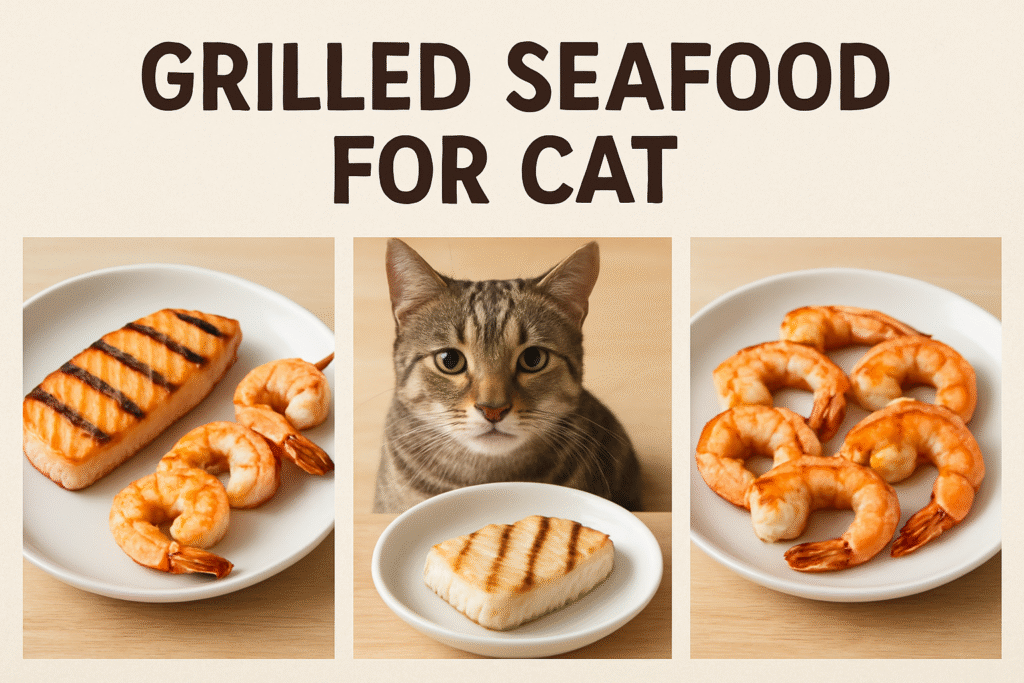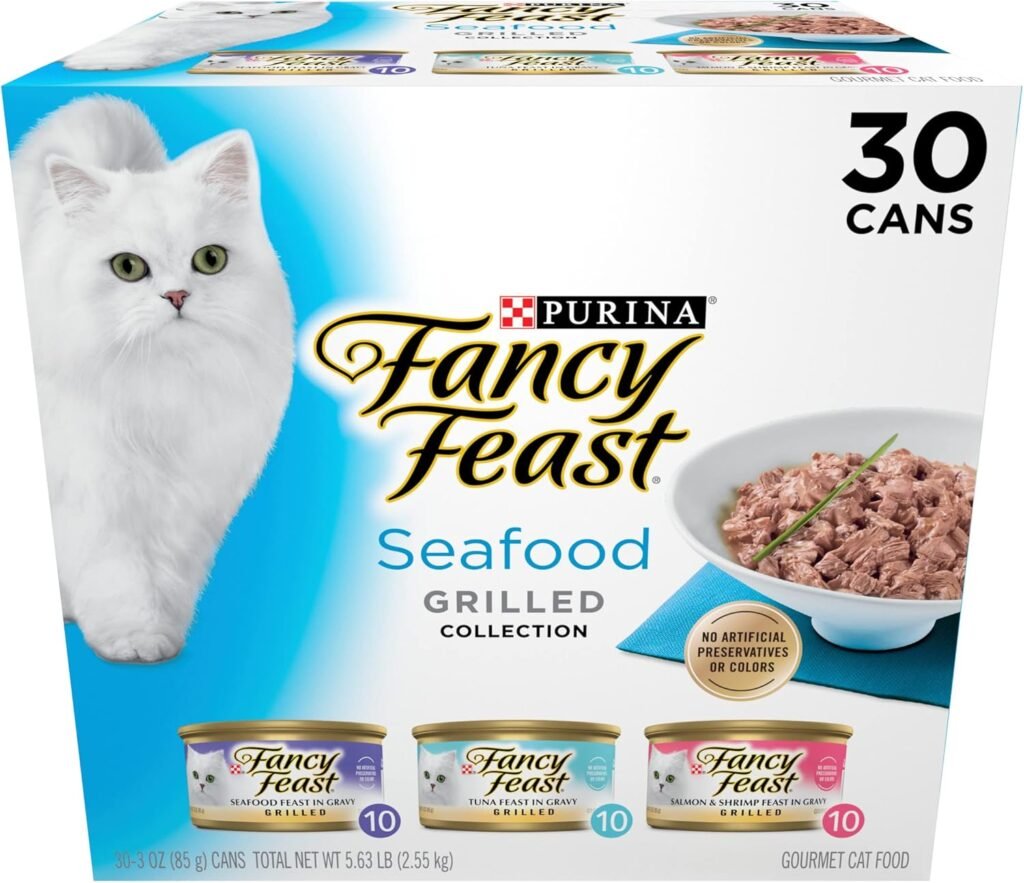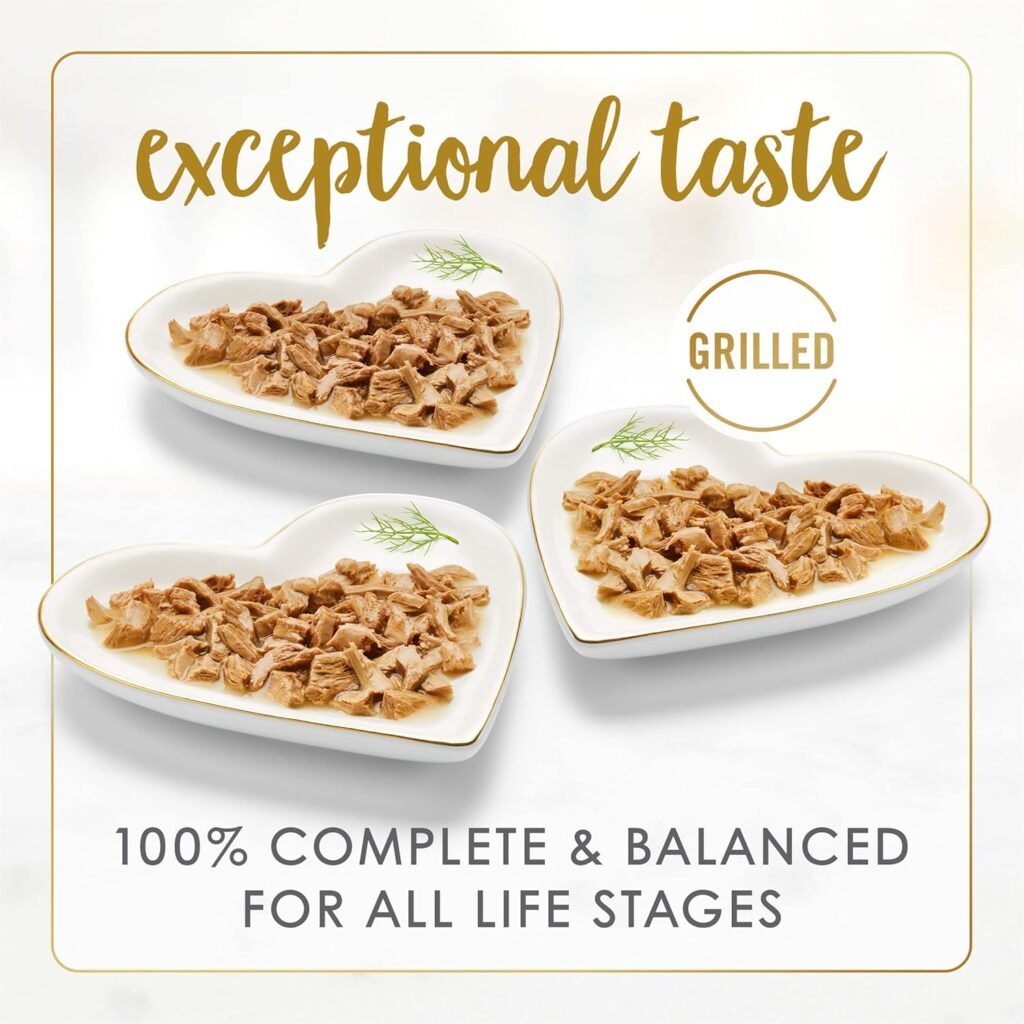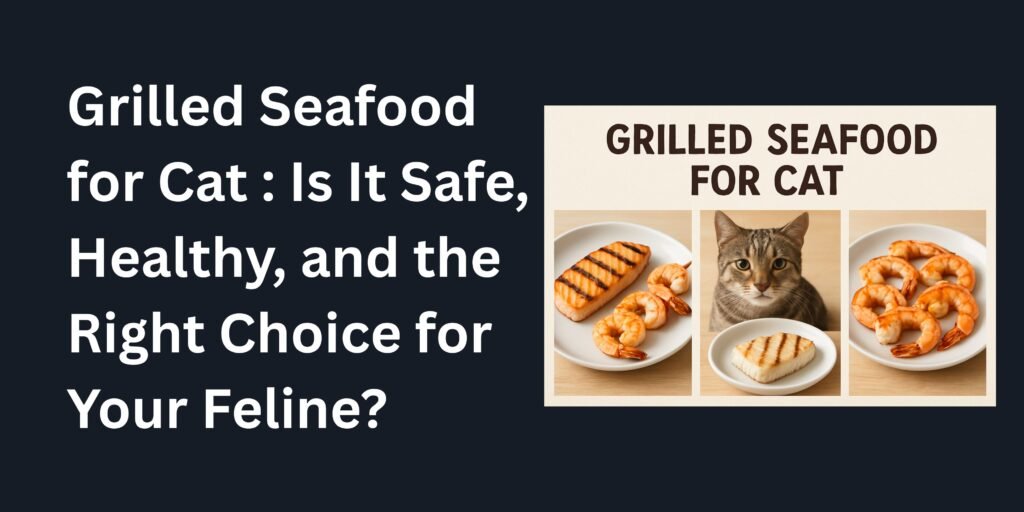Grilled Seafood for Cat, As cat owners, we want to give our furry friends something nice to eat, while making sure they remain safe and healthy. And if you like seafood, you may be tempted to share a bite with the cat, especially if it’s a morsel of freshly grilled fish. But the thing is: Is grilled seafood safe for cats, or might it do more harm than good?
In this guide, we’ll cover everything you should know about feeding grilled seafood to cats, from the benefits and risks to healthier options, so you can make an informed decision for your cat.

Are Cats Born to Like Seafood?
Cats are obligate carnivores and need animal protein to flourish. Not all cats have an innate desire for fish, but a lot seem to enjoy the smell and flavor of seafood. The aroma of cooking fish can be too alluring, and your cat may decide that they want some of what’s on your plate.
But while cats enjoy seafood, that doesn’t mean there’s room for all seafood or all of the many methods of cooking it we favor in their diets.
The Possible Benefits of Seafood for Cats
Seafood can be beneficial to cats in moderation:
- Protein → Good quality protein is essential for powerful muscles and proper growth.
- Omega-3 fatty acids → Keep the skin and coat shiny and healthy!
- Vitamins & minerals → Fish is a great source of nutrients such as Vitamin D, iodine, and selenium.
There’s even fish-based proteins in some commercial cat foods to help provide variety and nutritional completeness.
The Dangers of Feeding Grilled Seafood to Cats

Grilled seafood might not sound harmful, but it is not always the best pick for your cat. Here’s why:
1. Seasonings and Spices
We humans can be creatures of habit and if left to our own devices, even the most health-conscious of us may top off a grilled fish portion with salt, garlic, onion, pepper, butter or sauces—all of which can be dangerous for a cat to ingest.
2. Bones and Shells
Tiny fish bones, shrimp shells or crab can pose a choking hazard, mouth injuries or digestive blockages.
3. Cooking Oils and Butter
Too much fat coming from oils and butter will cause a cat’s digestive to become upset, and can lead to obesity or pancreatitis.
4. Mercury and Toxins
Some seafood (such as tuna and swordfish) can be high in mercury, which is not safe for cats to eat on a regular basis.
5. Digestive Issues
Cats’ stomachs are sensitive. You can even get sick from consuming small amounts of grilled fish if it’s not prepared right, so these things are certainly not play play ok?
Can Cats Have Grilled Plain Seafood?
If the seafood is:
- Fresh
- Grilled simply (no marinades, butter or seasonings)
- Boneless
- Fully cooked … then your cat should generally be O.K. with the occasional small treat.
But it’s not a substitute for a feline’s full diet. And cats require a balance of protein, fats and essential nutrients—none of which can be found in grilled seafood alone.
Grilling Seafood, the Safer Way
If you desire to feed your cat some seafood without the dangers:
1. Steamed or Boiled Fish: By avoiding oil, spices, butter, and other human edibles we protect from feline digestion.
2. Commercial Cat Treats with Seafood: A number of pet food manufacturers make cat-friendly freeze-dried or canned fish cat treats.
3. Vet-Approved Supplements: Omega-3 supplements from fish oil may be a way to get the health benefits of seafood without cooking fish.
Expert Recommendation
Vets recommend feeding seafood treats sparingly and that specially formulated cat foods should be the focus. Cats require taurine, an amino acid found in animal tissue, but a fish-heavy diet can become imbalanced or even create health problems, such as urinary problems.
So, while a bite of plain grilled fish here or there is OK, seafood should never, ever become a staple in your cat’s diet.
Key Takeaways:
- True, small amounts of plain grilled seafood can be fed to cats, but the fish must be boneless, unseasoned, and void of any remaining fat.
- No, it does not need to become a staple meal seafood is always best served on a limited occasion and in moderation.
- Never give your cat new food without first checking with your vet.
- Safer alternatives are boiled, steamed or vet-approved seafood treats.

Final Thoughts & Get Involved
Grilled seafood can sound like a tasty way to partake in a meal with your favorite feline, but there are risks to this indulgence that every pet owner should think about. It’s safest to go with plain, boneless, unseasoned pieces—whether they’re dehydrated, freshly-cooked, or raw—completely on occasion only, and always keep your kitty’s long-term health over short-term indulgence.
At the end of the day, your cat is counting on you to do the right thing. Do your best to love on them, ask your vet what to feed them, and perhaps investigate some healthy cat food options. And your purring, cuddling companion will thank you, in the comfort of your arms.
Explore more and stay informed!

